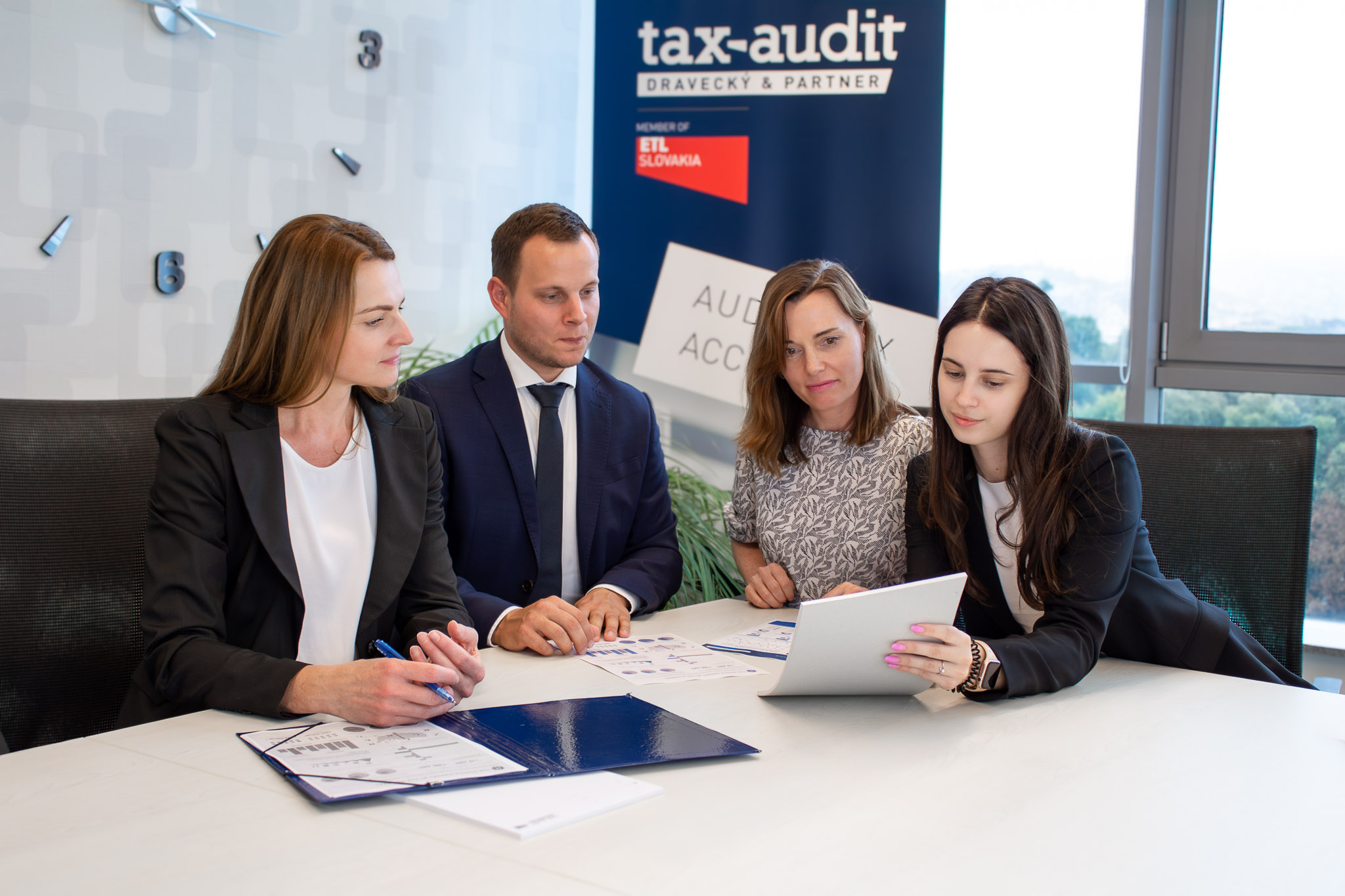An increasing number of entities and entrepreneurs are considering and purchasing electric cars for their businesses. The motivations for buying an electric car for business purposes vary – lower operating costs or environmental concerns. However, a significant motivator is also the tax legislation in the Slovak Republic, which is positively inclined towards electromobility in business through various tax advantages for the purchase and use of electric cars in business.
What is considered an EV?
Electric passenger cars that have the following indicated in their registration certificate, part II, under item 18 P.3 Fuel type/power source: BEV or PHEV in any combination with another type of fuel or power source.
In addition to the passenger cars mentioned above, from 1 January 2025, electric cars will also include bicycles and scooters with an auxiliary electric motor.
Tax advantages:
- Tax depreciation of an electric car: The most significant tax advantage for electric cars is that, according to the Slovak Income Tax Act, they are classified in depreciation group 0, which means that an entrepreneur can depreciate the electric car for tax purposes (claim it as a tax-deductible expense) over a period of 2 years. Other passenger cars are depreciated over 4 years according to the law. Note: in the case of a micro-taxpayer, this period is even 1 year, but we would like to point out that it is necessary to meet the conditions of the Income Tax Act for an entrepreneur to be considered a micro-taxpayer and to benefit from other tax advantages. You can read more about the conditions for the micro-taxpayer status and its tax advantages in a separate article here.
- Non-monetary income of an employee: If an employee is provided with a company car for both business and private purposes, in accordance with the Income Tax Act, they are taxed on a non-monetary income of 1% of the vehicle's acquisition cost per month (Note: the acquisition cost is gradually reduced over time, by 12.5% annually, for a maximum of 8 years). In the case of an electric car, the employee's non-monetary income is taxed at only 0.5% of the car's acquisition cost per month instead of 1% (the acquisition cost is also gradually reduced by 12.5%, for a maximum of 8 years).
- Motor vehicle tax: In Slovakia, electric cars have a preferential annual tax rate for motor vehicle tax purposes, where a vehicle whose sole source of energy is electricity has an annual tax rate of EUR 0 (in words: zero EUR). The annual tax rate for vehicles (categories L, M1, and N1) that are hybrid, as well as motor vehicles powered by compressed natural gas (CNG) or liquefied natural gas (LNG), and motor vehicles with hydrogen propulsion, is reduced by 50% of the basic annual rate.
Financing electromobility
In the Slovak Republic, the Electromobility Development Action Plan came into force in 2023, containing 16 measures for the period 2024-2027. The measures are focused on supporting the construction of a network of ultra-fast charging points (UFC), the development of charging infrastructure, the promotion of public transport, battery systems, and the purchase of zero-emission and low-emission vehicles.
Despite the ambitious Electromobility Development Action Plan, subsidies for the purchase of electric cars in the Slovak Republic are still in the preparatory and discussion stage, although state support subsidies for the purchase of electric cars were already in place in several countries, including Slovakia, in the years 2016-2019.
Currently, subsidies are available for the construction of publicly accessible charging stations, and both municipalities and entrepreneurs can apply for them. The financial limit of the aid (subsidy) is set at 60-100% of eligible expenses, and the maximum amount of eligible expenses per charging station is determined from EUR 4,500 to EUR 30,000, depending on the type of charging station and its power output.
Electric cars are becoming an increasingly integral part of the lives of people and companies in Slovakia. Their implementation into business is more accessible and efficient thanks to a denser network of charging stations in cities and beyond (e.g., along expressways, at petrol stations, or in villages), as well as more affordable electric cars compared to the past. Apart from the ecological aspect and company policies, a significant motivator for purchasing an electric car for business is the tax advantage it brings.
In connection with tax expenses for the operation of electric cars, particularly demonstrating that electricity consumption can be more complicated for an entrepreneur than with internal combustion engines, as the technical certificate of an electric car does not state consumption data, but only the amount of energy in kWh the car needs to travel 100 km.
If needed, we will be happy to provide you with support in establishing the correct procedure for demonstrating electricity consumption, as well as in other accounting and tax issues related to electric cars.
Be the first to know about the latest information from the world of taxation, accounting and auditing.
.jpg)












































